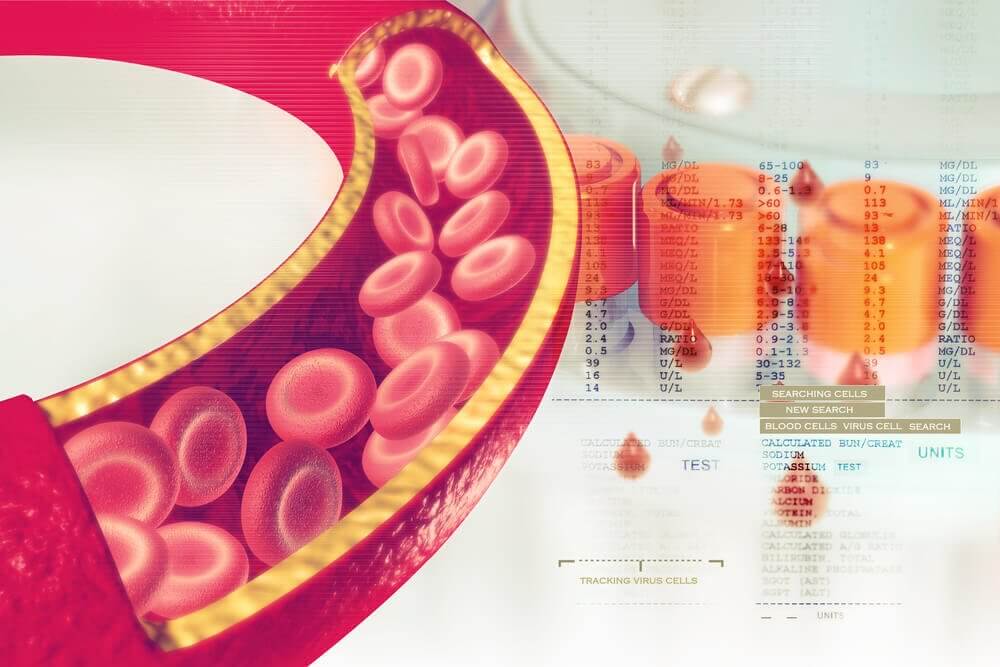8 Benefits of Drinking Lemonade Regularly


Written and verified by the doctor Nelton Abdon Ramos Rojas
Drinking lemonade or lemon water allows you to take advantage of two powerful ingredients: lemon and water. Below you’ll learn about some of the many health benefits that these nutrients provide for your body.
It’s been shown through 200 epidemiological and clinical studies that a fruit- and vegetable-based diet can halve the risk of suffering from chronic diseases. Citrus fruits are no exception.
That’s why regularly drinking lemonade – preferably unsweetened and all natural – is a great complement to a healthy diet.
Lemonade: The Perfect Combination of Water and Lemon
Lemon, a fruit from the Indian lemon tree, is known for its vitamin C (ascorbic acid) contents. The body needs this nutrient for collagen synthesis, red blood cells, and the proper functioning of the immune system.
In fact, lemon is one of the citrus fruits with the highest vitamin C content (40 to 70 milligrams per milliliter of juice).
However, its valuable properties don’t only relate to its ascorbic acid contents. Lemon also contains beta-carotenes and flavonoids (hesperidin, diosmin, eriocitrin, etc.).
In short, these substances contain antioxidants and anti-free radicals, as well as have analgesic and anti-inflammatory effects.
Also read: Eliminate Uric Acid with Artichoke and Lemon Water
On the other hand, water is an essential life-sustaining element. It hydrates and alleviates digestion, constipation, and headaches.
Water also regulates body temperature and improves the immune system, among other benefits.
Drinking lemonade or lemon water is an excellent remedy and offers an impressive range of benefits, including:
Venous Insufficiency

Lemon juice contains diosmin, a substance that doctors use to treat venous insufficiency, varicose veins, and rheumatoid arthritis.
It promotes blood circulation, reduces inflammation, and increases collagen production.
This active component is also used to improve muscle tone, vascular resistance, and inflammatory conditions. It can even strengthen the walls of the veins.
In conclusion, diosmin has anti-inflammatory, anti-haemorrhoidal, and antioxidant properties, among others.
You may also like: Read These 6 Tips if You Want to Prevent Varicose Veins
Prevents Osteoporosis
Thanks to the effects of vitamin C, lemon juice increases bone density due to the good osteoblastic development of bone matrix.
It also stimulates cartilage formation between joints, thus improving bone structure health in general.
Good Diuretic

It also inhibits the renal ability to reabsorb sodium and cleanses the body of this macro-mineral.
We recommend reading: Diuretic Foods that Cleanse Your Body
Natural Laxative
Lemon’s laxative function is another known property of this citrus fruit. By stimulating the production of digestive enzymes, lemon juice improves intestinal activity and softens stool, thus relieving constipation.
Prevents Anemia

The effects of drinking lemonade or lemon water also participate in the tissue formation that prevents anemia.
It facilitates iron absorption in the gastrointestinal tract and promotes the mobilization of this mineral from the body’s deposits.
In fact, iron absorption from meat, fish, or chicken may be increased 4 times more than from iron that comes from foods like milk, cheese, or eggs.
Improves Digestion
Drinking lemonade stimulates the production of saliva, gastric juices in the stomach, and pepsin.
These substances promote digestion because they break down food, thus ensuring proper protein absorption.
If you suffer from indigestion after a good meal, heartburn, bloating, or gas, drink a glass of water. You’ll feel relief within a few minutes.
Helps You Lose Weight

Thanks to pectin, limonene, and vitamin C, lemon inhibits appetite, boosts metabolism, and decreases fat absorption in the body.
It also reduces the production of cholesterol, triglycerides, and high blood sugar levels.
Lemonade isn’t a miracle cure for weight loss, but it will help you reach your goal.
Balances pH
The potential of hydrogen (pH) measures the concentration of hydrogen ions in the body. A healthy pH level varies between 7.3 and 7.45.
However, poor eating and life habits cause alterations in its balance. This is because these levels prevent stabilization through the kidneys. As a result, such a state causes disease.
Lemon, and therefore lemonade, despite being acids, become alkaline when entering the body. That’s why it purifies the blood and detoxifies the body.
In fact, this alkylating effect is reflected externally because it improves our appearance. This includes dry skin, brittle nails, and lifeless hair.
Also check out: How to Get Rid of Too Much Acid in Your Body
After learning about the many benefits of drinking lemonade or lemon water, we hope you consider adding it to your regular diet!
There’s nothing better than taking advantage of the benefits that nature provides us.
All cited sources were thoroughly reviewed by our team to ensure their quality, reliability, currency, and validity. The bibliography of this article was considered reliable and of academic or scientific accuracy.
- López, M. Á. (2008). Etapas del cambio conductual ante la ingesta de frutas y verduras, control de peso y ejercicio físico de estudiantes de la universidad del desarrollo, sede Concepción, Chile. Revista chilena de nutrición, 35(3), 215-224.
- Fernández, H. y Martínez L. EFE Salud (2017) [Internet]. ¿Cuáles son los beneficios y propiedades de cítricos como el limón? [Consultado el 18/01/2019]. Disponible en: https://www.efesalud.com/limon-citricos-usos-beneficios
- FESNAD-SEEDO. Recomendaciones nutricionales basadas en la evidencia para la prevención y el tratamiento del sobrepeso y la obesidad en adultos (Consenso FESNAD-SEEDO). Revista Española de Obesidad. 2011;9. 2
- Ministerio de Agricultura, Alimentación y Medio Ambiente. Cítricos. Panel de hogares. 2008 [citado 18/01/2019]; Available from: http://www.marm.es/es/alimentacion/temas/ consumo-y-comercializacion-y-distribucionalimentaria/monografico_citricos_tam_08_ tcm7-7908.pdf 3
- Ministerio de Agricultura, Alimentación y Medio Ambiente.. Monográfico de Limones. Panel de Hogares. Período: Junio 2008-Mayo 2009. 2009 [citado 18/01/2019]; Available from: http://www.ailimpo.com/documentos/ Monografico_Consumo_Limones_HOGARES_ MARM_Junio08-Mayo09.pdf
- SINC. Dietas ‘detox’: tu hígado no las necesita. (2016). Recuperado el 16 de mayo de 2021. https://www.agenciasinc.es/Reportajes/Dietas-detox-tu-higado-no-las-necesita
- Klimek-Szczykutowicz, M., Szopa, A., & Ekiert, H. (2020). Citrus limon (Lemon) Phenomenon-A Review of the Chemistry, Pharmacological Properties, Applications in the Modern Pharmaceutical, Food, and Cosmetics Industries, and Biotechnological Studies. Plants (Basel, Switzerland), 9(1), 119. https://doi.org/10.3390/plants9010119
-
Lappalainen R, Mennen L, van Weert L, Mykkänen H. Drinking water with a meal: a simple method of coping with feelings of hunger, satiety and desire to eat. Eur J Clin Nutr. 1993 Nov;47(11):815-9. PMID: 8287852.
This text is provided for informational purposes only and does not replace consultation with a professional. If in doubt, consult your specialist.








